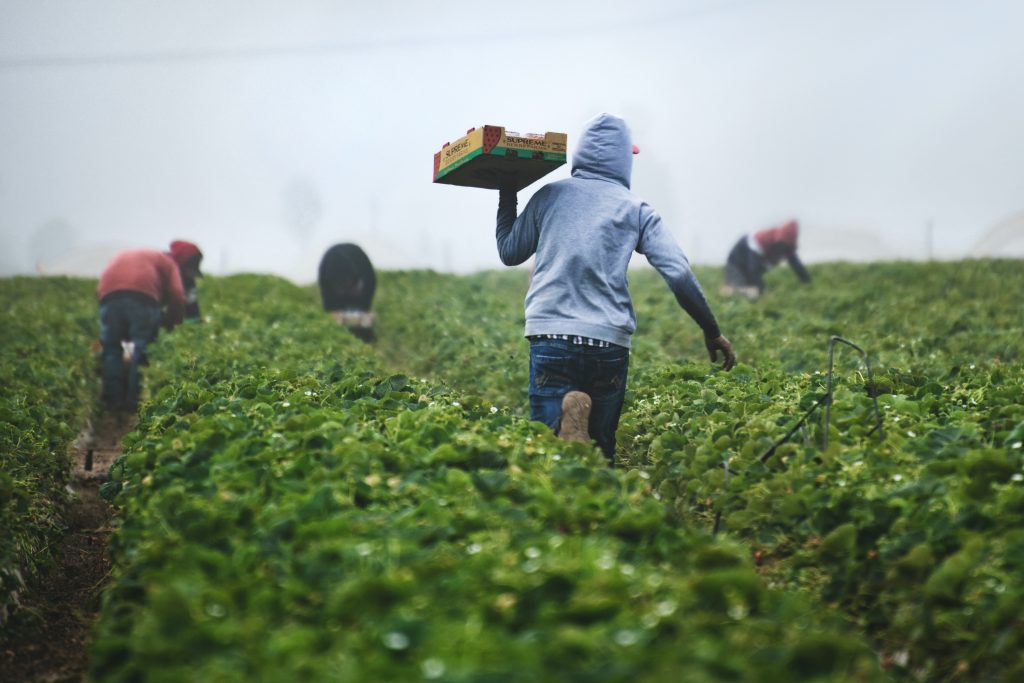
Ethical Consumerism and Moral Economy: Is ‘Fairtrade’ Really Ethical?
Article by Sofia Fukawa
Photo by Tim Mossholder on Unsplash
Since starting university, you should hopefully have had the chance to go shopping for food at least once. During your shopping trip, have you ever noticed labels or certification stickers on the products you pick up? ‘NON-GMO project Verified’ labels, ‘Rainforest Alliance Certified’ marks, and ‘Certified Sustainable Seafood MSC’ logos would be a few examples of this. Some of these food logos, as you may have noticed, are a source of sustainability promotion and their role is to spread consumer awareness of food-related injustices. In this blog, I would like to talk in particular about the fairtrade certification. Perhaps you have seen this label on bananas, coffee or chocolate. For clarification, my main focus here will be food, but fairtrade also applies to products other than food, such as clothes and bags.
The Fairtrade Foundation [1] explains Fairtrade as an initiative designed to promote better prices, decent work conditions and fair terms aimed at empowering farmers and workers in developing regions so they are able to resist exploitation and improve their living standards, local communities, and public facilities. It is a partnership that aims to cultivate a closer relationship between producers and consumers. The act of empowering producers that are exploited and informing consumers about such realities strives to create a more sustainable world, and therefore fairtrade products can be considered ethical.
These ethical products were at some point considered sophisticated and exclusive and were not easily accessible to everyone. However, the Guardian [2] elaborates on how fairtrade products have started to become the mainstream choice of product in UK markets as the Fairtrade Foundation intended. They say that according to the Fairtrade Foundation, even during the current economic state where prices are continuously rising, three-quarters of UK shoppers are investing in ethical brands. This shows how fairtrade products are no longer fancy purchases where financial limitations become an obstacle but rather have become products that take part in our daily lives.
Nonetheless, as all products do, fairtrade products contain flaws that we should be aware of as consumers. Certainly, some critique its limitations in addressing broader systematic issues in global trade. A Wageningen University campaign video [3] shows an interesting perspective about how fairtrade can be seen as ‘fairwashing’. It explains how fairtrade became a target for organizations and companies to promote their products as ‘ethical’ to increase their sales. The credibility of large organizations taking part in selling fairtrade products is that they have the power to influence consumers to choose ethical products. However, such organizations also have the danger of losing the original purpose of promoting fairtrade products. In a New York Times article written by Milton Friedman [4], he argues that it is in the nature of corporations to prioritise their profit in order to succeed in the market. The so-called ‘shareholder primacy’ could make it innate for such institutions to take advantage of fairtrade certifications for the purpose of their profiting.
A BBC article [5] explains how ‘fairtrade’ cannot always be seen as the perfect solution that we imagine it to be. As previously explained, fairtrade focuses on providing farmers and workers with the support to improve their standard of living. However, there are some concerns about fairtrade being a trap for such farmers and workers, because it is not helping them to learn modern strategies to craft products or to actually escape from the poverty cycle. This same article shows an example of wage differences between fair trade coffee farmers and conventional coffee farmers in Peru. While the conventional coffee farmers were paid eight soles a day, (around US$2.1) fairtrade coffee farmers were paid ten soles a day (around US$3). Although the fairtrade farmers are receiving more money, the difference is not so great. Potentially, the benefits gained from this wage difference will not be huge, and this leaves us with the question as to whether fairtrade is quite as perfect as we imagine it to be.
To conclude, fairtrade on the one hand contains many strengths which contribute to refining the well-being of farmers and workers who suffer from exploitation. However, as with any other solution for social injustices, there are imperfections, and the discussion continues as to whether fairtrade is exactly an aid that such people benefit from in the long term. What we as consumers can do is to stay conscious of such backgrounds and the different certifications we see on the products we consume.
Footnote:
[1] Fairtrade Foundation, “What is Fairtrade?”
[2] Wood, Z. (2023, Feb 25). “UK Supermarkets expand budget Fairtrade ranges as demand grows”: The Guardian
[3] Maite Leij, Looking Beyond Fairtrade: ‘Fairwashing’
[4] Friedman, M (1970, Sept 13). “A Friedman doctrine—The Social Responsibility of Business Is to Increase Its Profits”: The New York Times
[5] O’Neill, B. (2007, Mar 7). “How Fair is Fairtrade?”: BBC NEWS

0 Comments